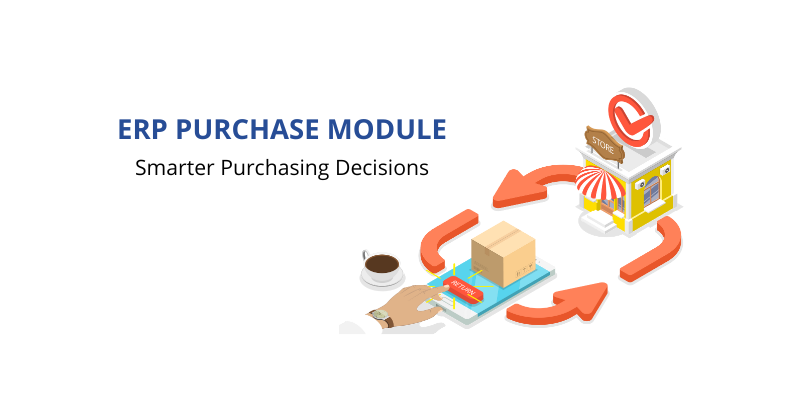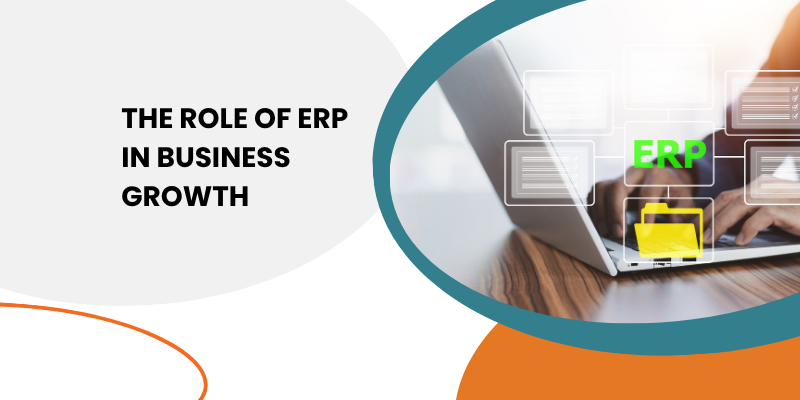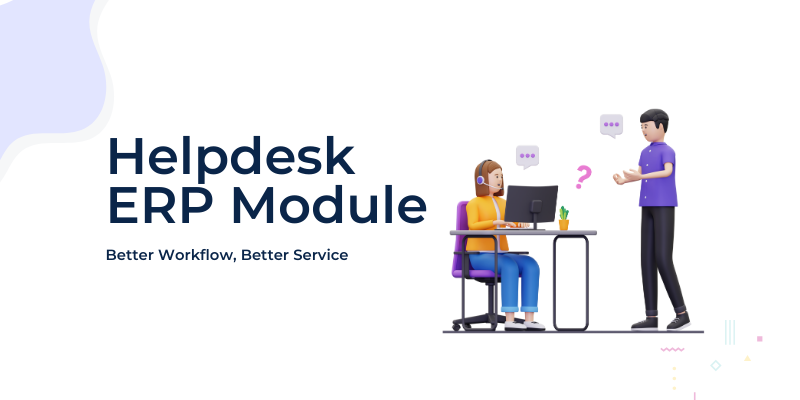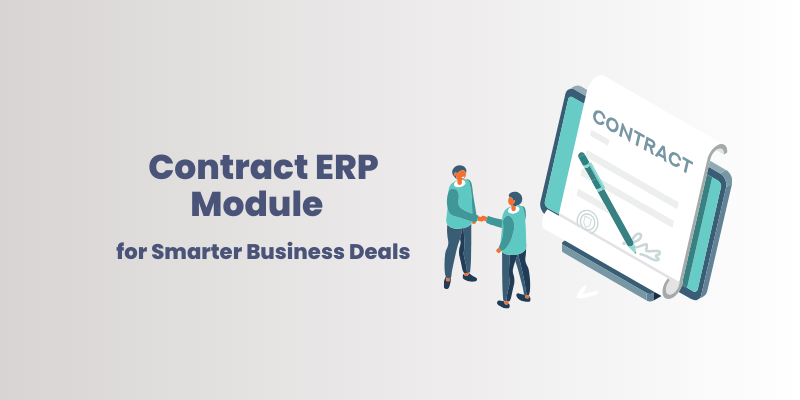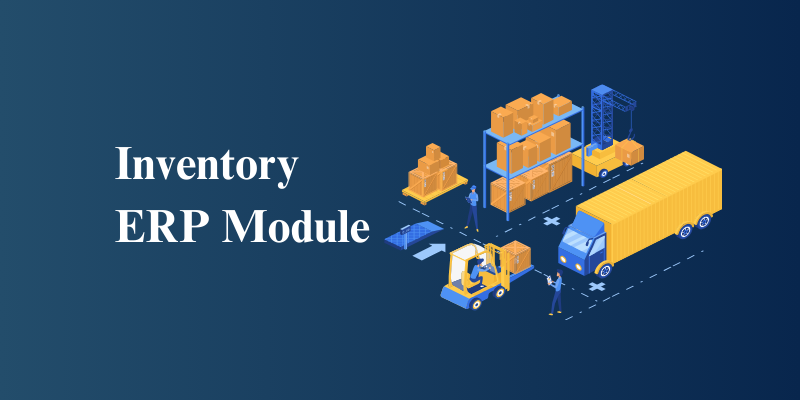Managing purchases efficiently is a key factor in ensuring a smooth supply chain and cost-effective operations. Businesses need a structured approach to procurement to prevent delays, control expenses, and maintain quality. This is where an ERP purchase module comes in. It helps businesses automate and simplify their purchasing processes, ensuring that orders are placed on time, resources are allocated properly, and costs are minimized.
An ERP purchase module is designed to manage purchasing activities in an organized manner. It assists businesses in handling purchase orders, supplier management, inventory tracking, and payment processing. With the right system in place, businesses can improve decision-making and reduce unnecessary expenses.
Features of Purchase Module in ERP
A well-structured purchase module in an ERP system offers various features that help businesses manage procurement efficiently. It provides tools for automating purchase orders, tracking supplier interactions, integrating inventory data, and ensuring proper invoice management. By simplifying these processes, businesses can enhance operational efficiency, reduce manual errors, and gain better control over their procurement activities.
Purchase Order Management
- Automates the creation and tracking of purchase orders.
- Ensures accuracy by reducing manual errors.
- Allows businesses to set approval workflows for purchase orders.
Supplier Management
- Stores supplier details and purchase history for better decision-making.
- Helps in comparing vendor performance and selecting the best options.
- Simplifies communication with suppliers by keeping records of transactions.
Invoice and Payment Processing
- Simplifies invoice approvals and payment schedules.
- Reduces the risk of delayed or duplicate payments.
- Provides a clear record of expenses for financial tracking.
Approval Workflows
- Allows businesses to define approval rules for purchases.
- Ensures that only authorized personnel can approve orders.
- Reduces unauthorized spending and improves accountability.
Purchase Procedure Steps
An efficient purchase module follows a structured approach to procurement. Here are the common steps involved:
Identifying Requirements
- The first step is recognizing the need for materials, equipment, or services.
- Businesses analyze stock levels and future demands before initiating a purchase.
Selecting Suppliers
- Companies evaluate different vendors based on cost, quality, and reliability.
- Supplier contracts and agreements are reviewed before finalizing orders.
Creating Purchase Orders
- A purchase order is generated, specifying the items, quantities, and agreed prices.
- The purchase order is then sent for approval within the organization.
Approving the Purchase Order
- Authorized personnel review and approve the purchase request.
- Approval workflows ensure that orders meet budgetary and operational requirements.
Processing Invoices and Payments
- Once the purchase is confirmed, the supplier sends an invoice.
- The finance team verifies the invoice and processes the payment accordingly.
Benefits of ERP Procurement Module
Cost Control
An ERP purchase module helps businesses keep track of their expenses and control spending. By reviewing past purchases and setting budgets, businesses can make better decisions about where to allocate funds. It prevents unnecessary orders by ensuring that procurement is based on actual needs, reducing waste and saving money. With automated approvals, only necessary purchases are made, helping businesses stay within their budget.
Better Supplier Relationships
A well-managed supplier database allows businesses to work efficiently with vendors. An ERP purchase module helps track supplier performance, delivery schedules, and product quality, making it easier to choose reliable suppliers. It also simplifies communication by automating orders, approvals, and payments, preventing delays. Strong supplier relationships lead to better deals, improved service, and smoother transactions.
Improved Accuracy
Errors in purchase orders and invoices can cause delays and financial losses. An ERP purchase module reduces mistakes by automating orders, tracking approvals, and keeping accurate records. With everything stored in one system, businesses can avoid duplicate purchases and pricing errors. This improves financial accuracy and makes audits and reporting easier.
Efficient Resource Allocation
A good purchase module ensures that businesses only buy what they need when they need it. By connecting procurement with inventory and production, it helps prevent stock shortages or unnecessary purchases. Automated demand forecasting ensures that materials and equipment are ordered at the right time. This leads to better resource management and smooth business operations.
Faster Procurement Process
Traditional purchasing methods often involve long approval times and paperwork. An ERP purchase module speeds things up by automating requests, approvals, and supplier interactions. With real-time tracking, businesses can monitor order progress and avoid delays. This makes it easier to get the right materials on time, keeping operations running smoothly.
Enhancing Procurement Efficiency with Code Agrius Oreius ERP Purchase Module
An ERP purchase module is essential for businesses looking to improve their procurement process. It helps manage supplier relationships, control costs, and ensure smooth order processing. With features like purchase order automation, inventory integration, and invoice management, businesses can operate more efficiently. Code Agrius Oreius ERP provides a comprehensive purchase module that simplifies procurement and enhances overall efficiency, making it a valuable tool for businesses of all sizes.
FAQs
How does an ERP purchase module help businesses save money?
It helps track expenses, prevent duplicate orders, and negotiate better deals with suppliers, leading to cost savings.
Can small businesses benefit from an ERP purchase module?
Yes, small businesses can improve their procurement process by automating tasks, reducing manual errors, and ensuring better supplier management.
How does an ERP purchase module improve supplier management?
It maintains a record of supplier transactions, evaluates performance, and helps businesses choose the best vendors for their needs.
Is it necessary to integrate the purchase module with inventory management?
Yes, integration ensures that businesses purchase only what is needed, preventing stock shortages or excess inventory.
What makes an ERP purchase module effective?
Features like automation, real-time tracking, and detailed reporting make procurement more efficient and cost-effective.

